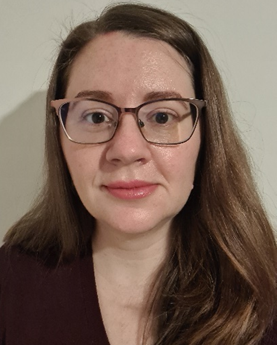Need Help?
14 June 2023
Interview with Dr. Anca Mazare—Winner of the Coatings 2022 Outstanding Reviewer Award
We would like to thank the award committee of Coatings (ISSN: 2079-6412) for their hard work in selecting two winners from such a large number of exceptional candidates, with Dr. Anca Mazare being one of the winners. We will continue to reward reviewers with the Outstanding Reviewer Award to acknowledge their efforts in maintaining the high quality and quick turnaround time of the journal, and we wish them every success in their careers.

Short biography: Dr. Anca Mazare received her Ph.D. in chemistry from Politechnica University of Bucharest, Romania, in 2012 under the supervision of Prof. Demetrescu. She then joined the group of Prof. Schmuki at the Friedrich-Alexander University Erlangen-Nuremberg (FAU), Germany, in 2012 as a postdoctoral fellow, and was a visiting associate professor at AIMR, Tohoku University, Japan, for 13 months between September 2021 and January 2023. Currently, she is also pursuing her habilitation under the supervision of Prof. Schmuki. Her research field comprises oxide nanomaterials and their nanostructuring, composite materials of different oxides, oxide modification with organic materials, biomaterials, energy conversion, photocatalysis, and surface analytics (XPS, SEM, ToF-SIMS, AFM, electrochemical characterization). She is an active reviewer and has published more than 80 papers in international journals, has an h-index of 30, and has given numerous oral presentations/invited talks at international conferences.
Interests: nanomaterials; nanostructuring; nanomanufacturing; biomaterials; functional biomaterials; semiconductors; photocatalysis; electrocatalysis; X-ray photoelectron spectroscopy; surface analysis techniques; single atom; energy conversion
We hope you enjoy the interview.
1. Could you give a brief introduction of yourself to the readers?
As mentioned in my biographical statement, I am currently a postdoctoral researcher but I’m also additionally pursuing my habilitation at FAU. I enjoy the challenges that come with research in general, as well as the teaching opportunities.
2. What is your current research and why did you choose this research field?
I am currently working on oxide nanomaterials and their applications in energy conversion and biomedical areas. This is actually quite a vast field, but for me, I found my niche when I started my postdoctoral activity in 2012 working in the group of Prof. Schmuki, an expert in the field of nanostructured oxide materials via electrochemical anodization, and building upon this with targeted applications. I am also fascinated by surface analysis techniques that bring forth a more thorough understanding of materials’ properties.
3. Which research topics do you think will be of particular interest to the research community in the coming years?
Research topics are in a continuous state of development, especially regarding the strive for green energy, sustainability, and better utilization of resources. Besides these research directions, I strongly believe that medical research will always be of interest, i.e., devices, drugs, and biomedical applications. No matter the advances in the design of materials, analysis techniques also have to keep up, especially regarding nanosurfaces and in situ analysis.
4. Have you ever encountered any difficulties conducting research? How did you overcome them?
There are always difficulties in research. From the perspective of the research itself, what you plan/expect is not (always) what you get, so adaptability, finding alternate solutions to reach milestones, and resilience are always a must. My approach is seeing it as figuring out a puzzle, and I adapt based on my initial findings. One difficulty is related to time management, especially for researchers with kids who are directly dependent on their available childcare solutions. For me, the toughest time was the closure of kindergartens during the COVID pandemic, and I cannot say I overcame it, but I survived it.
5. What qualities do you think young scientists need?
Curiosity, adaptability, resilience, some analytical abilities, and good enough communication and collaboration skills.
6. If you have the opportunity, will you actively apply to attend academic conferences? What do you think you can learn from participating in conferences, which is different from working in a lab?
Yes, I do strive to actively attend academic conferences (although this is more difficult now with a 5-year-old and an 8-month-old baby). Participating in conferences strengthens one’s analytical skills (figuring out what others did from their presentations/posters), communication (being able to briefly explain why your research is important), language skills, and it can also improve collaboration skills. The highest impact lies in networking, which can bring about an increase in collaborations.
7. What do you think are the main criteria that should be taken seriously in the process of reviewing manuscripts?
This is a long list but some of the most important aspects are the following: Is there novel data or the reproduction of previous works? How does it fit into the research topic? Does the data support the authors’ conclusion? Are the methods clearly described (logical, reproducible, etc.)? Does it fit within the scope of the journal (consider its novelty too)? Is there a clear presentation of data, sound data presentation?
8. We are an open access journal. How do you think open access impacts reviewers and authors?
This enables greater accessability, as no subscription is needed and this leads to a higher distribution of the work and more visibility for the authors. The reviewers can be negatively impacted by the number of papers that they receive for review, as reviewing is time-consuming, and thus a balance between the research work, teaching, and other activities has to be found. However, reviewing strengthens one’s knowledge in their respective field of work and keeps reviewers up-to-date with recent scientific developments.

